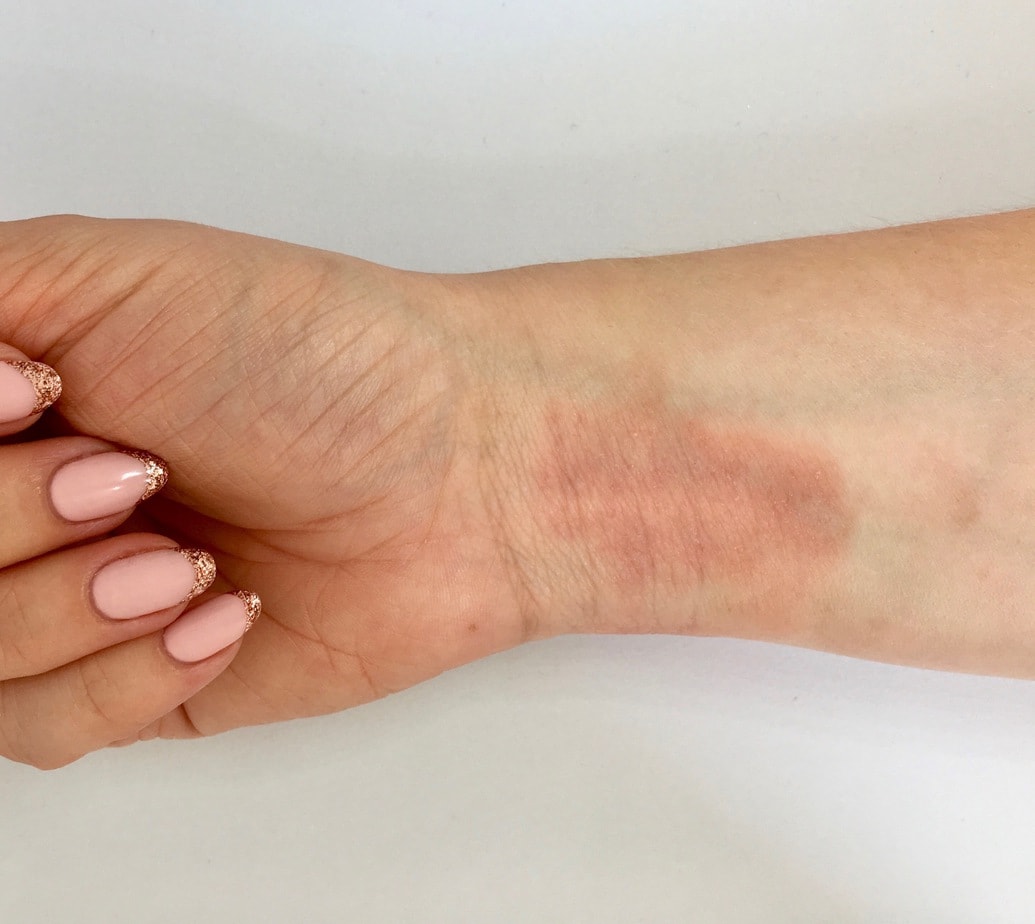
How to service clients suffering with eczema
By Scratch Staff | 04 August 2018 | Expert Advice, Feature

Do you know how to help clients with the common yet chronic skin condition of eczema? As sometimes present on the hands and arms, your pre-treatment consultation should see you able to identify the condition, and adapt your treatment if needed. Alice Lambert, director of services at National Eczema Society, shares her advice…
What is eczema?
Eczema, also known as dermatitis, is a non-contagious, long-term dry skin condition. It’s a highly individual condition and comes in many different forms. The inherited kind of eczema is called atopic and is the most common type of eczema. The skin is often very itchy and the urge to scratch can be irresistible. During a flare-up it can also be red, sore and raw. In more severe cases there may be weeping, crusting and bleeding. Constant scratching causes the skin to split and bleed and also leaves it open to infection.
 Your Client
Your Client
A client with eczema may not be able to tolerate all the products usually used in professional hand or nail treatments, due to their skin being extra-sensitive and susceptible. It’s important for beauticians to ask clients about their eczema and find out if they have any known contact allergies. Creams and lotions containing fragrance, including essential oils, should be avoided.
Nail technicians could recommend a self-patch test using salon products for a 24-hour period a week before the client comes in for a treatment, to see how the client’s skin reacts. Clients could also be given the option of bringing in their usual leave-on emollient for a hand massage.
If eczema is flaring or hands have cracks and fissures, hand massages should be avoided, but a manicure could still be carried out. If eczema is infected – manifesting in weeping skin with yellow crusts – the treatment should be postponed.
If a client finds a treatment painful, the treatment should be stopped and the beautician should encourage the client to see their GP for assessment and treatment. You can also emphasise good hand care; emollients – medical moisturisers – should be used both as leave-on moisturisers and as soap substitutes. We recommend that people with eczema avoid creams and lotions containing fragrance, including essential oils, as this can irritate the skin.
They can also suggest visiting the National Eczema Society website – www.eczema.org– or calling our helpline – 0800 089 1122, for further information.
It’s important for beauticians to be aware that people with eczema may feel very sensitive about their condition and appearance. It’s also worth noting that it’s best for people with eczema to keep their nails short to minimise damage caused by scratching.
You can read more about eczema, its causes and treatment in the August issue of Scratch – click here!

Read the latest issue









